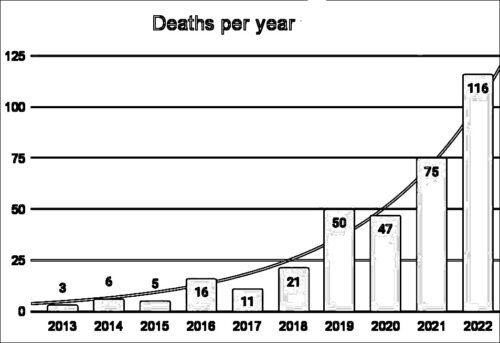Tesla continue to “abruptly veer” their occupants fatally into trees, poles and other cars.
The fraud of “Autopilot” is suspected in a new NC crash, from a combination of hardware and software design defects.
Jillian Daly was operating her 2020 Tesla Model Y north on Westridge Road, according to the news release. She drove through the southbound lanes and off the roadway to the left, police said. The vehicle struck two large trees.
Daly was taken to the hospital with life-threatening injuries and died on Tuesday.
The news says she was operating the car before she inexplicably drove it into the trees, perhaps a subtle clue from investigators. Exiting a curbed and quiet Westridge Road in Greensboro at 9:30 am suggests someone alert yet under pressure — distracted morning commuter or shopper on mission — not sleeping or night racing.
And the two large trees probably saved lives by preventing this Tesla from crashing and exploding inside someone’s house instead.


On that note the crash report reads to me like several other recent Autopilot disasters, including NY, FL, TX and CA. How many more “fans” of Tesla have to die like this?
What we know for certain is that Tesla after Tesla has suddenly killed people in “veered” circumstances. Some actually live to tell what it was like to have the Tesla robot try to murder them, such as a Michigan woman or, an Aussie man or a Californian man.
The car is basically an explosive loitering munition dumped into public use with faulty parts and bad code. The more Tesla on the road, the more disasters and death, with a direct causation unlike any other vehicle.
